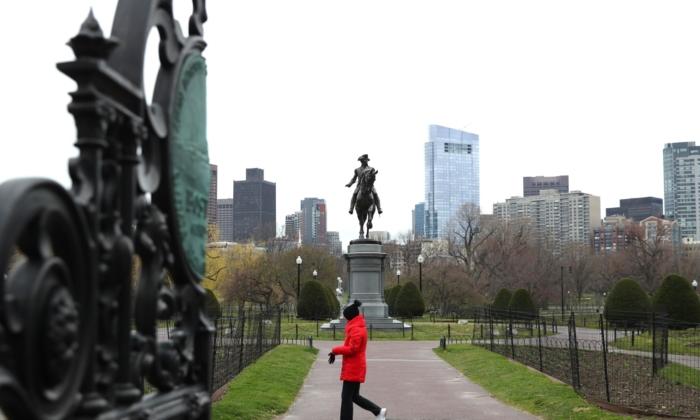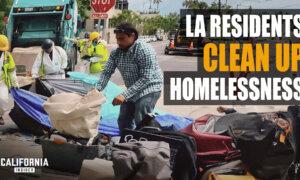The Massachusetts legislature has overwhelmingly rejected a pair of measures aimed at restricting newly arrived immigrants’ access to the state-run emergency shelter system and prioritizing shelter beds for homeless veterans.
The measures were introduced as amendments to House Bill 4600, a $57.9 billion state spending package for fiscal year 2025 that dedicates $500 million to the state’s overcrowded shelter system. Those shelters house both long-time Massachusetts residents and recent immigrants with eligible legal status, and have consistently been at the maximum capacity of 7,500 families since last November.
One amendment, introduced by House Minority Leader Bradley Jones and titled “Homeless Veterans Prioritization for Shelter Assistance,” failed on April 26 in a 27–129 roll call vote. All but two House Democrats cast disapproving votes while all 25 Republicans voted for it.
The other Republican-backed amendment sought to exclusively grant access to emergency shelters for Massachusetts residents who have lived within the commonwealth for no less than three months, with few exceptions. It was defeated on a 30–127 roll call vote.
“It’s extremely disappointing that most Democrats were unwilling to support an amendment to prioritize eligibility for the state’s emergency housing assistance program for honorably discharged homeless veterans,” Mr. Jones said in a statement.
State Rep. Gerard Cassidy, the Democrat who co-chairs the Joint Committee on Veterans and Federal Affairs, called Mr. Jones’s proposal a “political ploy,” adding that an upcoming bill will address veteran benefits.
“This is not a veterans’ bill. This is basically a political ploy to bring the veterans in,” said Mr. Cassidy, reported State House News Service. “This bill that will be coming out is more in tune to what we’re doing.”
In response to Mr. Cassidy’s characterization of his amendment, Mr. Jones argued that it was not a “political ploy,” but a “recognition of the debt we all owe to our nation’s veterans and consistent with the many other veterans preferences that exist in our current laws.”
“No individual who has served their country with valor and dedication should ever be forced to sleep on the street with their family,” Mr. Jones said. “At a time when our emergency shelter system is being stretched beyond capacity and has a growing waitlist for services, we need to set clear priorities to better manage the demand and eliminate the waitlist.”
“Ensuring the well-being of homeless veterans, who have sacrificed so much for our country and our Commonwealth, is not just a responsible policy decision; it’s a moral imperative,” he added.
The votes came a day after the Massachusetts legislature approved a bill imposing a nine-month limit on families staying in emergency shelters. Lawmakers said the bill would ease the financial burden on the state’s emergency assistance program, which faces a $224 million deficit this fiscal year and is projected to cost $1 billion for the next one.
To apply for shelter, at least one family member must show proof of their eligible immigration status, such as a U.S. passport, a green card, or documents that the United States is aware of the person’s presence and is not trying to make the person leave the country right away.
Last August, Massachusetts Gov. Maura Healey declared a state of emergency and appealed to the federal government for additional aid in the wake of an influx of migrants seeking shelter at a time when housing was already in short supply. By October, her administration imposed limits on the 40-year-old law, capping shelter placement at 7,500 families, or roughly 24,000 people.
The Healey administration has encouraged state residents to volunteer to host the newcomers, including those who came illegally and are not eligible to stay at state-run emergency shelters.
“If you have an extra room or suite in your home, please consider hosting a family. Safe housing and shelter is our most pressing need,” said Lt. Gov. Kim Driscoll in August.
“If you’re a local official, a college president, a business owner, or a faith leader with an available building or space in your community, please work with us to offer it as a shelter site,” she said.







